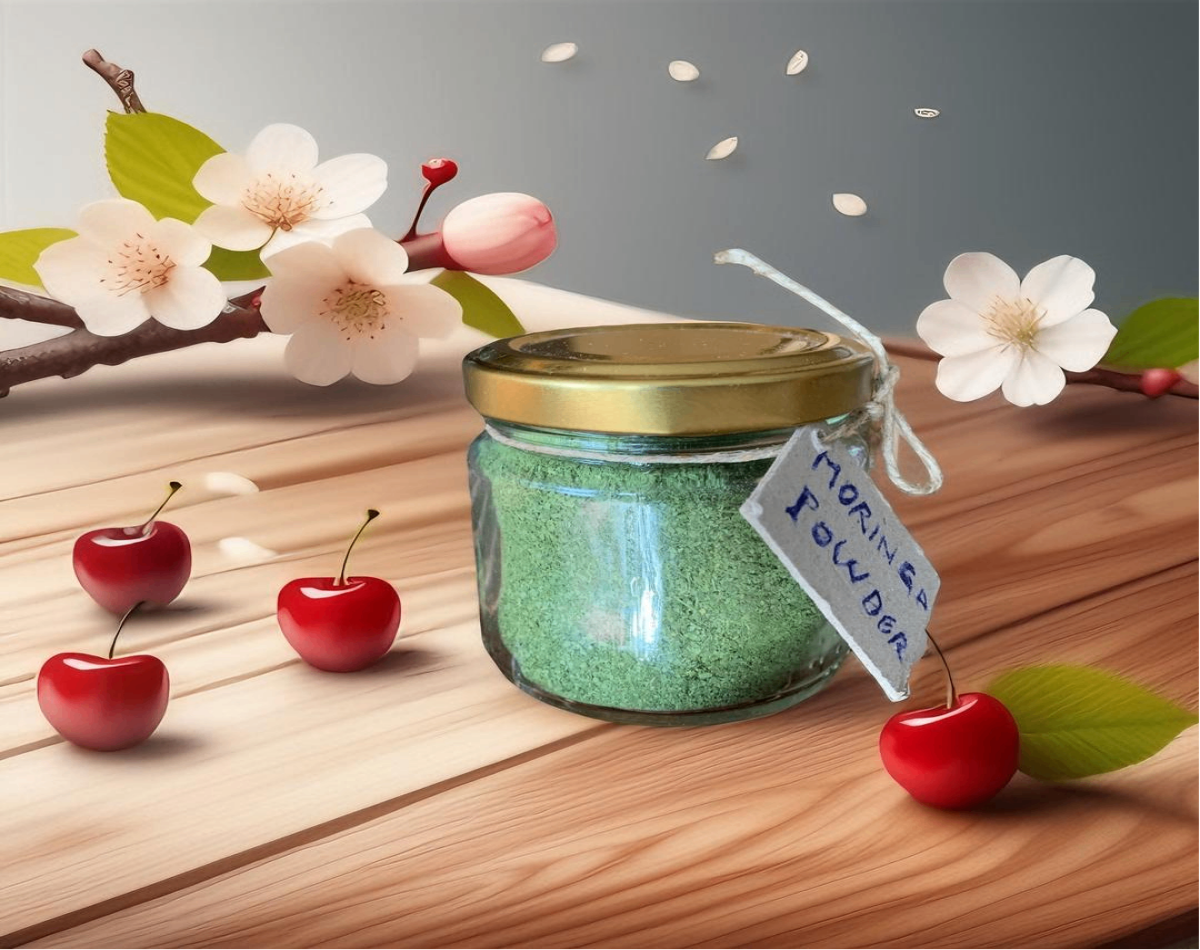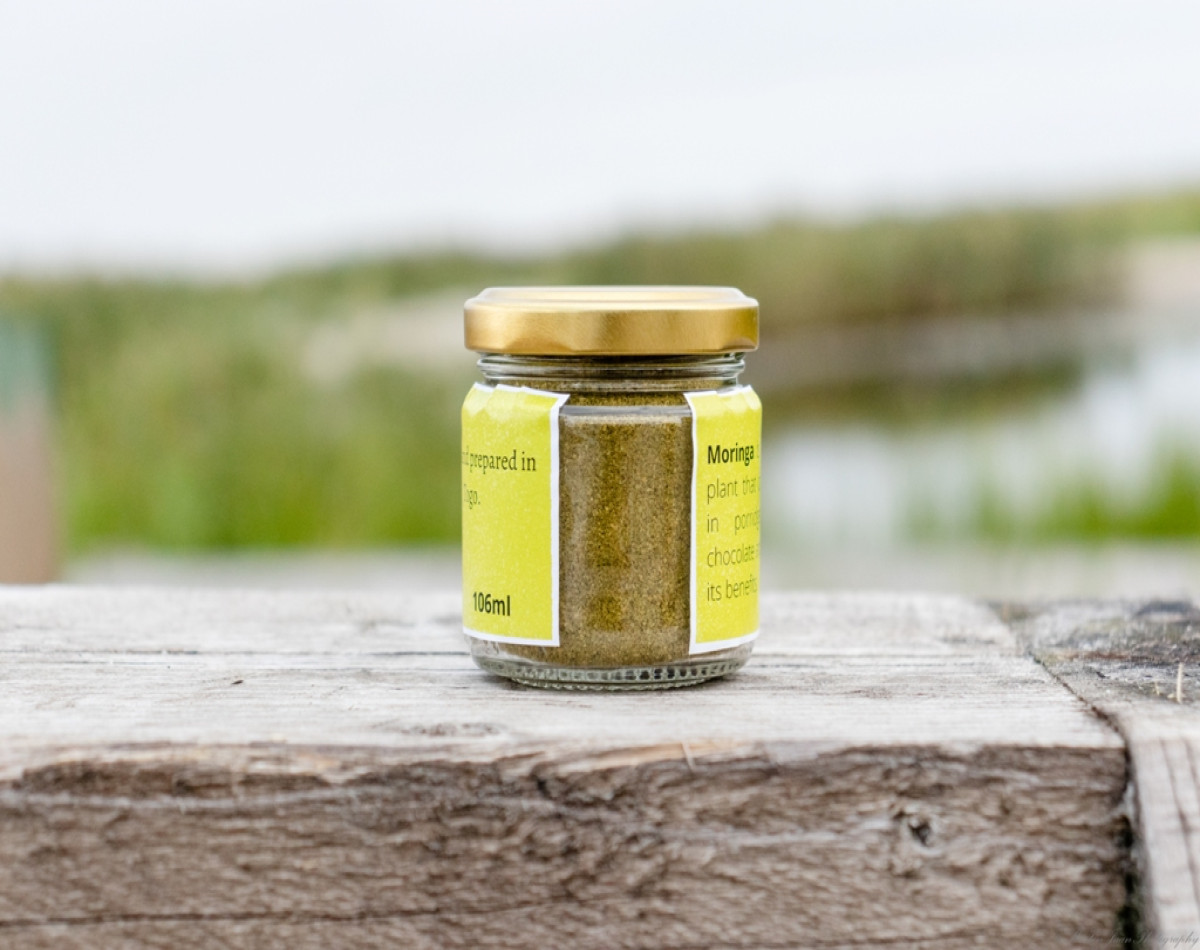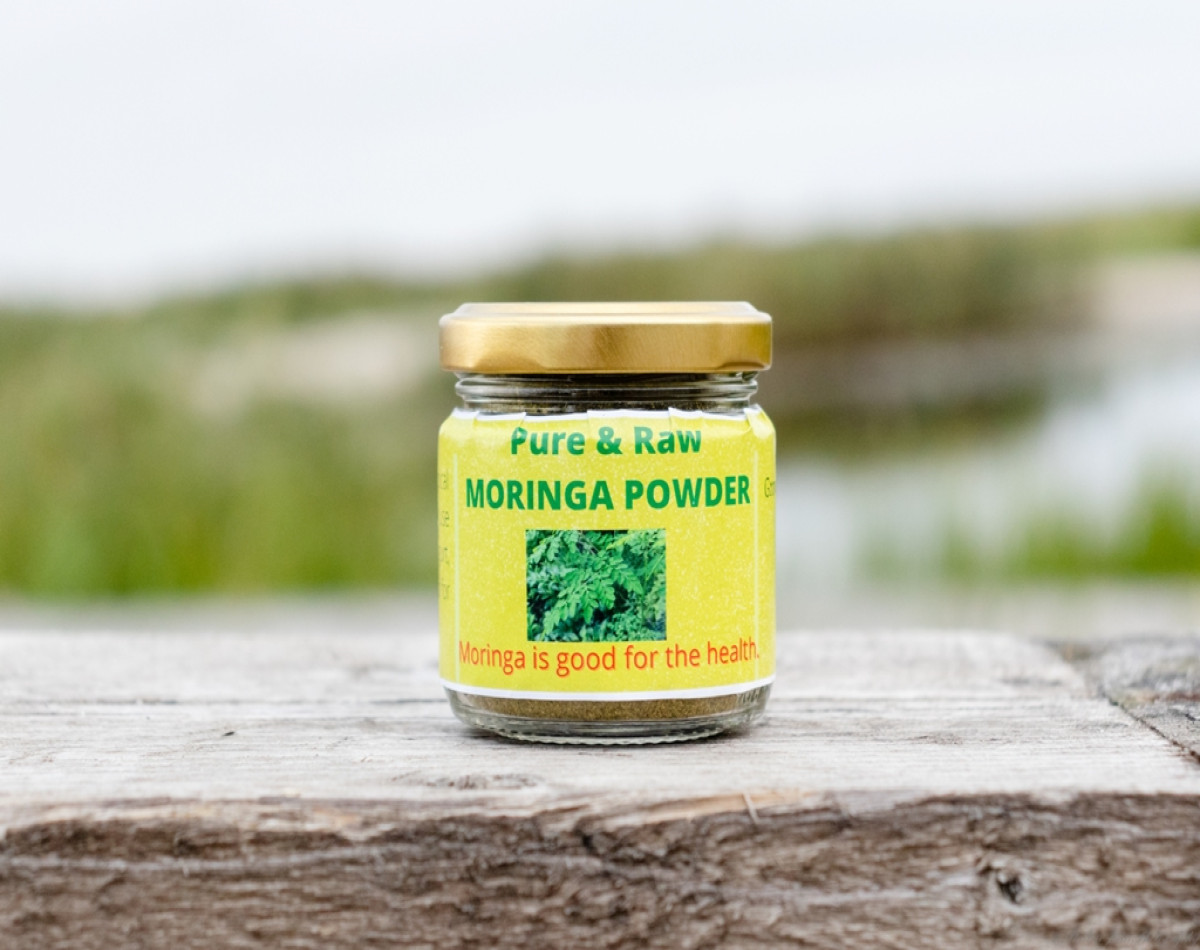Description
In a smoothie, infusion or in cooking, this powder with its superb green color and herbaceous taste will bring a concentrate of nutrients as well as an original touch to your preparations!
Uses : Put one spoons in foods (Yogurt, smoothie, preferably fresh foods, brief in milk product).
Read the uses of moringa powder proposed to you
The chemical composition of a teaspoon of moringa powder (about 2 to 3 grams). Here is an average estimate of its nutrients:
Macronutrients:
Protein: ≈ 0.5 – 0.8 g
Carbohydrates: ≈ 1 – 2 g (of which dietary fibre ≈ 0.5 g)
Fat: ≈ 0.1 – 0.2 g
Minerals:
Calcium: ≈ 30 – 50 mg
Magnesium: ≈ 5 – 10 mg
Phosphorus: ≈ 5 – 10 mg
Potassium: ≈ 40 – 80 mg
Iron : ≈ 0,5 – 1 mg
Zinc: ≈ 0.1 – 0.3 mg
Vitamins :
Vitamin A (beta-carotene): ≈ 200 – 500 µg
Vitamin C: ≈ 2 – 5 mg
Vitamin E: ≈ 0.5 – 1 mg
Vitamin B1 (Thiamine): ≈ 0.02 – 0.05 mg
Vitamin B2 (Riboflavin): ≈ 0.05 – 0.1 mg
Vitamin B3 (Niacin): ≈ 0.2 – 0.5 mg
Bioactive compounds:
Polyphenols (antioxidants)
Flavonoids
Chlorophyll
Moringa is therefore a real ‘superfood’ rich in essential nutrients, especially iron, calcium and antioxidants. It’s an excellent addition to your daily diet! 😊
Warning
The above properties, indications and methods of use are quoted from reference books or websites. This general information is provided for information purposes only and in no way constitutes medical information. Under no circumstances can this information be used as a substitute for a diagnosis, consultation or medical follow-up, nor can it incur our liability. If in doubt, we recommend that you consult a doctor.




Reviews
There are no reviews yet.